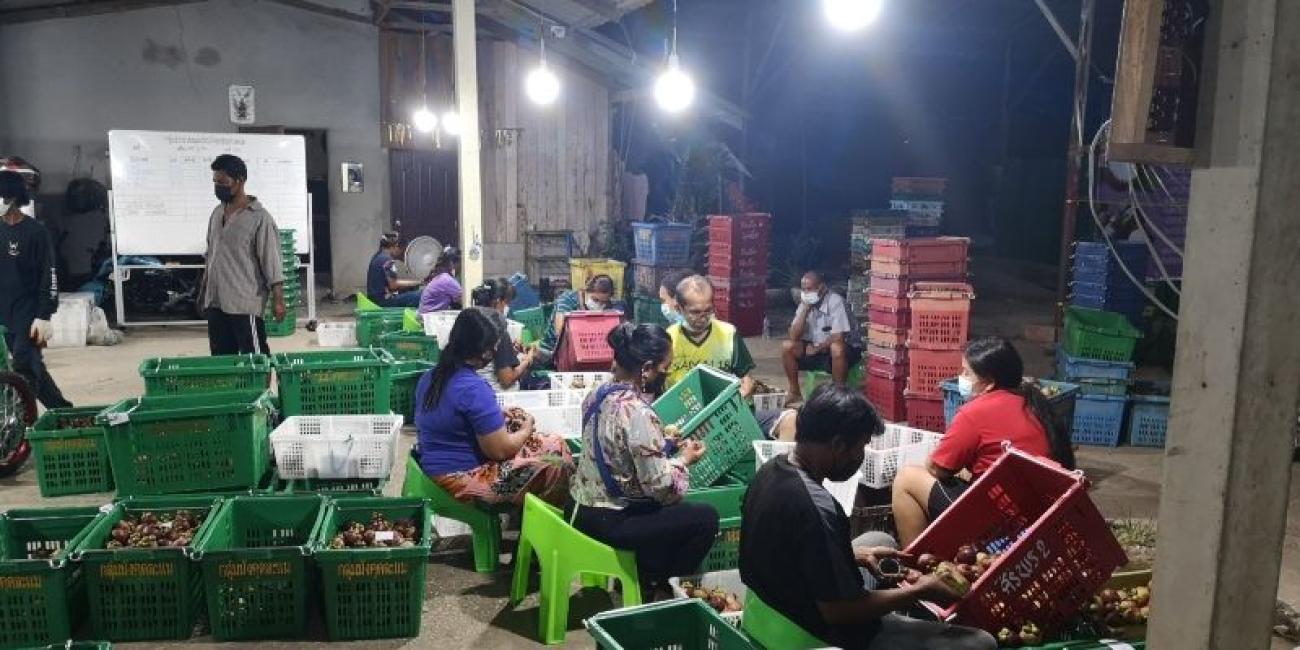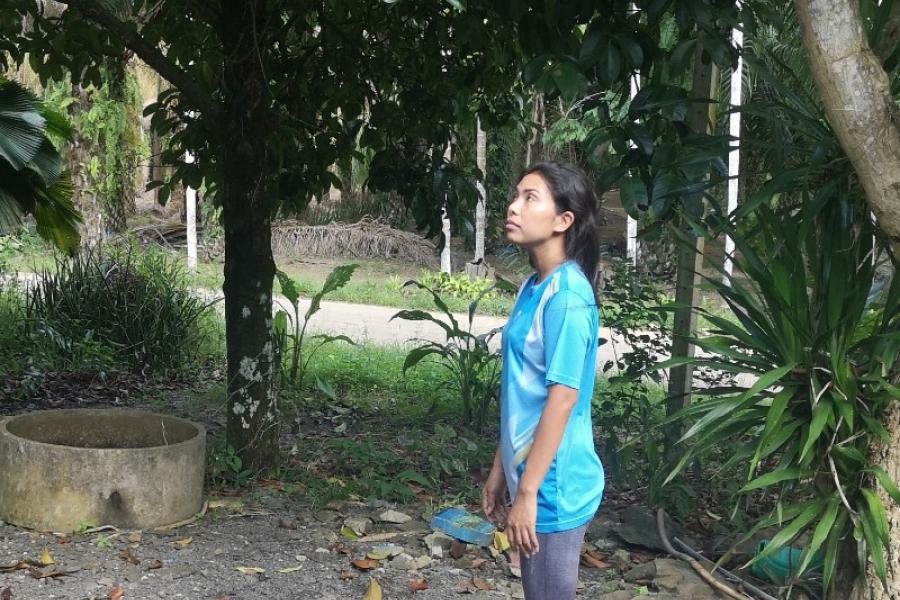Enhancing lifelong learning opportunities for underprivileged Thai youth and adults during the COVID-19 pandemic

Somrudee Rongrak, a 28-year-old non-formal education learner from Thailand’s Trang province, lost her job as a salesperson for a convenience store due to the COVID-19 pandemic. She decided to turn to her community by taking up a position as a village health volunteer, who were greatly needed in such difficult times. Despite her own tough financial circumstances, Somrudee also tried to help a disadvantaged women’s group in her village at earning much-needed income. Somrudee found herself struggling recently, however, with a new responsibility to develop the project and budget proposals required to raise funds for her community. Given her limited ICT and digital skills, she frequently sought help from other colleagues. Somrudee quickly came to realize that she had yet to develop such skills due to a general lack of opportunity in her earlier education.
At the same time, some four-hundred kilometers north, in Chomphon province, 35-year-old Sirinya Kittiyanukit, was putting great effort into running a mangosteen export business with members of her local community during the rise of the pandemic. Sirinya found herself unable to accurately predict her annual yield of mangosteen for export, which directly affected future business planning. Her business was at risk.

While 81 million workers have lost their jobs in the Asia-Pacific since the onset of the COVID-19 crisis in early 2020, the Thailand National Economic and Social Development Board predicts that 8.4 million laborers are now additionally at risk of losing their jobs in the tourism, hospitality, and manufacturing sectors. Thai youth face a similar situation, as approximately 520,000 new graduates are likely to encounter difficulties as they enter the job market. The transition already underway in Thailand toward emerging technologies requires that these young people and adults upskill, or reskill, to meet new business demands. These workers urgently need new opportunities, and new kinds of assistance from the government and the private sectors if they are to develop essential skills for pursuing their careers and lifelong learning goals.
‘Sustainable Development Goal 4’ of the UN 2030 Agenda calls on all Member States to ensure that all young people and adults achieve relevant and universally recognized functional literacy. Digital skills, in particular – already widely considered an integral component of any definition of ‘literacy’ – are foundational for a global, post-recession recovery. Together these key competencies impact employment opportunities in the dawning digital- and technology-driven era.
Somrudee and Sirinya are among many ‘non-formal education learners’ in Thailand who have participated in the initiative ‘Accelerating Thailand’, a multi-sectoral collaboration aiming to enhance the digital skills of underprivileged, or unemployed youth and adults affected by the pandemic.
Led by Microsoft Thailand, this public-private partnership has brought together seven agencies, namely UNESCO Bangkok; Digital Economy Promotion Agency (DEPA); Department of Skill Development of the Ministry of Labour; Office of the Non-Formal and Informal Education (ONIE) of the Ministry of Education; Thailand Professional Qualification Institute; Jobs DB Recruitment (Thailand) Ltd.; and the Thai Fund Foundation, to equip youth and adults with digital and other job skills that are fundamental to meeting the demands of today's fast-evolving labour market.
Through the ‘Accelerating Thailand’ project, Thai youth and adults may participate in skill development courses at community learning centres (CLCs), or learn through a partner agency's online platforms, including UNESCO Bangkok’s own online, lifelong learning course website www.lll-olc.net. This online curricula in digital skills for employment purposes comprises six main courses, ranging from digital literacy and Microsoft Word, and Excel and Powerpoint training, to more advanced content, such as mobile application development and data analytics. Learners are also readied to self-test their digital skills and thereby obtain a recognized skills certificate. They will then be further assisted in reaching out to employment platforms, where they can learn essential, complementary employment techniques, such as preparing job applications and mastering effective interviewing skills.
With the combined efforts of sponsoring partners, more than 7,600 non-formal education facilitators have already been trained. Over 100,000 learners, 66 per cent of whom are women, have received training through the programme, resulting in greater employment opportunities and greater self-confidence of employees in their work. Among the latter, over 80,000 learners have reported to their CLC facilitators that the project has helped to increase their learning opportunities, while some 14,000 learners report having experienced personal and family development. In addition, nearly 4,500 learners have further developed their current profession, and another 4,500 learners report gaining extra-income. Notably, over 1,900 learners report having started a new career. Finally, more than 150,000 learners report having participated in all partners’ online platforms, including UNESCO’s online course website.
Adult learning and education have traditionally been given relatively low priority by regional or national governments, with nearly half of all countries worldwide reporting spending less than 1 per cent of their public education budgets on adult learning. Moreover, a lack of formal accreditation based on qualifications and competencies places a limit on the learning and job opportunities of these learners in the non-formal education sector, especially when they must rapidly acquire skills to cope with sudden economic challenges. Collaboration from all sectors to enhance digital literacy and essential job skills with universally recognised certification are crucial for providing young people and adults multiple employability pathways and self-development throughout their lives, ultimately hlping to bridge the ‘digital gap’ in pandemic times and beyond.
Today, Somrudee takes pride in presenting project proposals to her coworkers, by using her newly- learned presentation and digital skills. Commenting on her newfound confidence, Somrudee states, ‘The officers praised me for getting the budget approval done on my own initiative. Now I don’t need to rely on my friend’. She is delighted that her self-improvement was a part of helping the women’s group in securing the funds to build careers for other underprivileged women, who are producing local products, such as shirts and bags.
Sirinya has similarly gained new confidence in running her mangosteen business, principally by utilizing her management of skills and knowledge of the Microsoft Excel application. As if sending a message out to all potential participants on how their lives might be changed for the better through such programs, Sirinya comments, ‘Now we can manage the data to forecast the mangosteen production and can plan better for the future’.
Original article published on UNESCO Bangkok.

